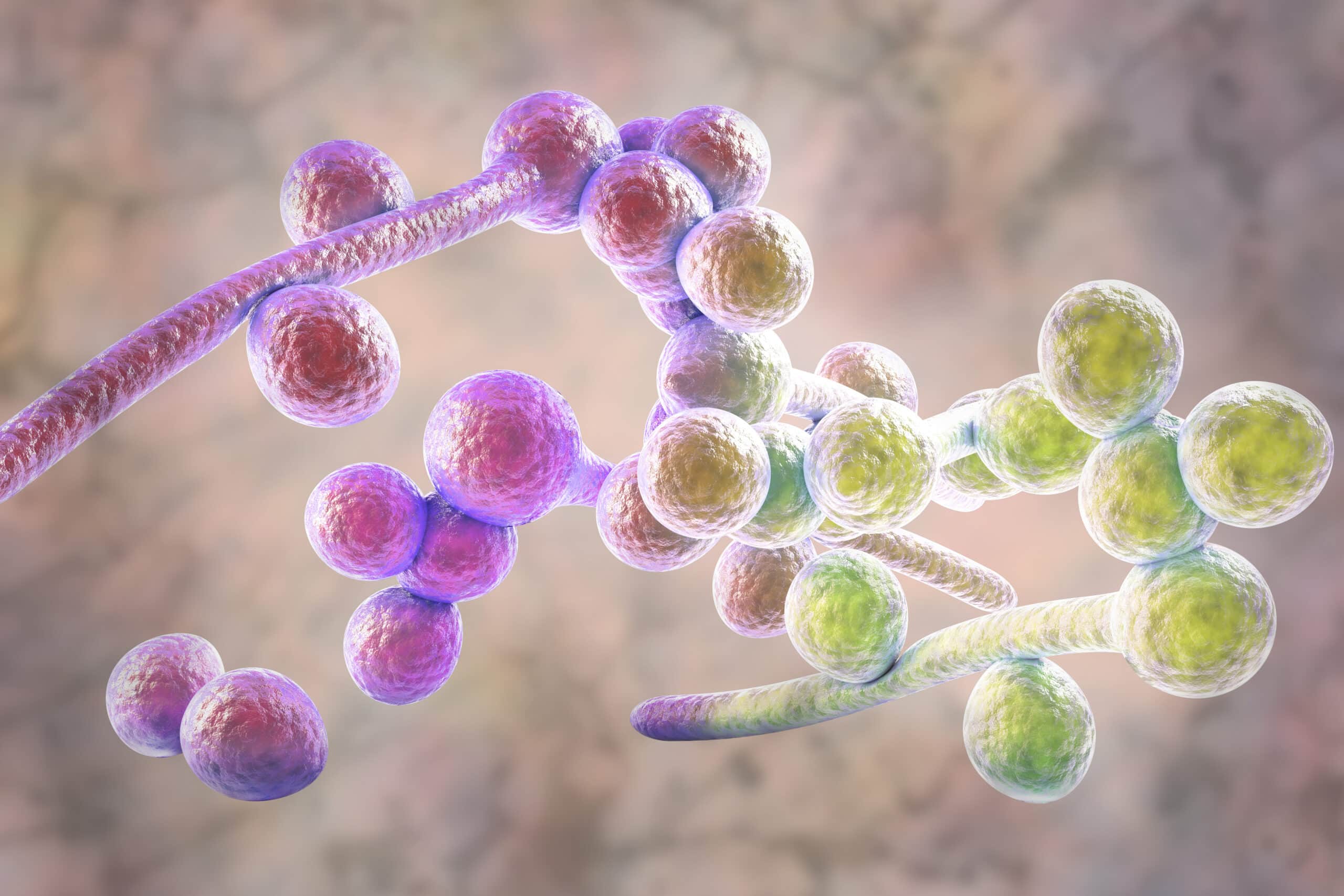Like bacteria, fungal microorganisms are an important part of the human microbiome and essential to human health. Scientists studying the microbiome over the past two decades have found thousands of species of microbes that live in and on the healthy body. More recently, researchers have started examining cancerous tumors to determine if they also harbor fungal life.
Following research published in 2020 showing that cancerous tumors contain bacteria, studies have now revealed that fungi also coexist with cancer cells. A pair of studies published in Cell establish a link between fungal species and certain cancers, but do not show if the fungi are directly responsible for cancer progression. Researchers say the knowledge may someday be useful in diagnosing cancer or predicting its course.
Tumors, Fungi, and Disease Outcomes
In one study, researchers at the Weizmann Institute of Science in Rehovot, Israel cataloged fungal populations in more than 17,000 tissue, blood, and plasma samples representing 35 types of cancer. Fungal DNA were present in every type of cancer studied, with different outcomes. The presence of Malassezia globosa, a fungus that has previously been associated with pancreatic cancer, for example, was linked to significantly reduced survival rates in breast cancer. The researchers also studied the bacteria present and found that most types of fungus had certain bacterial species that they tended to coexist with. This suggests that tumors may be non-competitive environments. In the gut, fungi and bacteria compete for shared resources rather than coexisting.
In a second study, researchers at Weill Cornell Medicine in New York City and Duke University found fungi in tumors from seven parts of the body: mouth, esophagus, stomach, colon, rectum, breasts, and lungs. Specifically, they found that gastrointestinal, lung, and breast tumors contained Candida, Blastomyces, and Malassezia fungi, respectively. Higher levels of Candida tropicalis and Candida albicans in gastrointestinal tumor cells were associated with higher gene activity that promotes inflammation, a higher rate of metastasis, and lower survival rates.
Despite these associations between fungi and disease outcomes, the research did not determine whether the fungi somehow cause these consequences or just happen to grow more easily in more advanced tumors. The researchers speculate that some microbes may disguise tumors, protecting them from the effects of the immune system or cancer drugs.
Future Research Directions
Both studies used samples from existing databases, so contamination could have happened during the collection process. Although the researchers used advanced computational methods to limit potential contamination, future research could use samples taken from a sterile environment to try to replicate the results.
Future research will also study one type of cancer at a time using cultured cells and animal models to determine if the presence of fungi among healthy cells promotes cancer development. Research could also examine how bacteria, viruses, and fungi interact to influence disease progression.
Fungal Biomarkers and Antifungal Cancer Treatment?
Finding DNA from the same fungal species in both gastrointestinal tumors and blood samples from the same patients suggests that it may be possible to detect tumors early by testing for fungal DNA. “These data are exciting because they lay the foundation for simple, inexpensive tests for Candida DNA that can more precisely delineate prognosis for gastrointestinal cancer, and augment standard tumor DNA biopsies to enable early detection of these cancers before other signs are present,” said Steven Lipkin, a study co-author and clinical geneticist at the Weill Cornell Medical Center, in a press release.
In addition, a better understanding of the fungi-cancer connection could someday allow researchers to create therapeutics that control fungal populations and limit cancer’s spread.
Did you enjoy this blog post? Check out our other blog posts as well as related topics on our Webinar page.
QPS is a GLP- and GCP-compliant contract research organization (CRO) delivering the highest grade of discovery, preclinical and clinical drug research development services. Since 1995, it has grown from a tiny bioanalysis shop to a full-service CRO with 1,100+ employees in the U.S., Europe and Asia. Today, QPS offers expanded pharmaceutical contract R&D services with special expertise in neuropharmacology, DMPK, toxicology, bioanalysis, translational medicine and clinical development. An award-winning leader focused on bioanalytics and clinical trials, QPS is known for proven quality standards, technical expertise, a flexible approach to research, client satisfaction and turnkey laboratories and facilities. Through continual enhancements in capacities and resources, QPS stands tall in its commitment to delivering superior quality, skilled performance and trusted service to its valued customers. For more information, visit www.qps.com or email info@qps.com.








